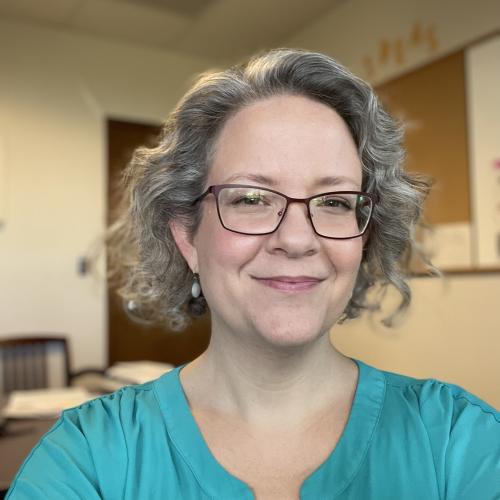
8 In-Demand Career Paths for a Master's Degree in Counseling
By Alaina Dunn, Assistant Vice President of Admissions, Palo Alto University
Earn Your Graduate Degree in-Person or Online

Earning your Master of Arts in Clinical Mental Health Counseling opens a wide range of career possibilities for a rewarding career. Our Master's degree offers integrated training and nuanced skills, with a focus on cultural consciousness, personal reflection, and service to a vibrant, diverse client population.
Palo Alto University is one of just eight California higher education institutions with a Council for Accreditation of Counseling and Related Educational Program (CACREP) accredited Master of Arts in Counseling program.
Counseling careers are in high demand – the U.S. Bureau of Labor Statistics expects mental health counseling job growth to expand by 25% over the next decade. And our graduates are incredibly successful, with licensure exam passage rights much higher than the California state average.
Training & Curriculum
PAU offers high-quality training that is flexible and more personalized than the other master's level degrees. Counseling is not a skill set you can learn by reading a book. You won't sit through one-dimensional lectures and "engage" through lengthy essays at PAU. Our courses go beyond theory, teaching real clinical interpersonal skills.
Whether pnline or hybrid options, students engage in our "flipped classroom" approach to instruction. Learners watch videos, read lessons, and write papers prior to class. During class time, you'll participate in interactive, small-group learning experiences through breakout sessions or Zoom Rooms.
Together with your peers and the support of your instructor and teaching assistant, you'll engage in discussions and clinical role-plays, challenging each other, and exploring ways to expand your skills.
Our curriculum meets very high CACREP standards. We provide students with the highest level of educational experiences, as well as tools to excel on certification and licensure exams. For example, PAU graduates' pass rate for the California Board of Behavioral Sciences LMFT licensure exam is 20% higher than the state's average, and our PCC rates are 9% higher.
The MA in Clinical Mental Health Counciling curriculum includes:
- 93 quarter credits required for degree completion
- 700 hours of counseling-related experience
- A minimum of 100 practicum hours
- Two 300-hour internships
- Degrees from CACREP programs are easily transferred from state to state for licensure programs. As a result, our program has drawn an increasing number of dedicated learners annually for the last seven years.
Upon graduation, you will be prepared to take the Licensed Professional Clinical Counselor (LPCC) and/or Licensed Marriage and Family Therapist (LMFT) examinations for licensure and certification in California or another state if you meet its educational qualifications. If you need more hours or coursework, we will help you achieve your goals. Learn more.
Most students choose to enter the workforce straightaway after obtaining their MA in Counseling – the majority of counseling-related positions do not require a doctorate. With your MA, you'll find a number of fulfilling careers, depending on your chosen track.
Roles include:
- Administrator: Admissions, business offices, clinical practices – you name it.
- Advocate: Give patients and underserved individuals a voice in challenges related to social inequities, cultural discrimination, and mental health-related injustices.
- Agency-based Counselor: Help clients manage personal or relationship challenges, including issues related to substance use.
- Clinical Counselor: See patients from all walks of life in a variety of clinical settings.
- College Campus Counselor: Help students, faculty, and staff navigate pressing and emerging challenges of daily life through the lens of higher education.
- Educator: Give the gift of education with your learned and natural counseling skills.
- Mobile Crisis Clinician: Go to the people and areas that need your skills most, right now.
- Researcher: Explore best practices and how to improve standards of care.
Fields include:
- Agency or Private Practice
- Career and Guidance Counseling
- Health Maintenance Organizations
- Nonprofits
- Rehabilitation Facilities
- Religious Organizations
- School Systems
- Social Services


